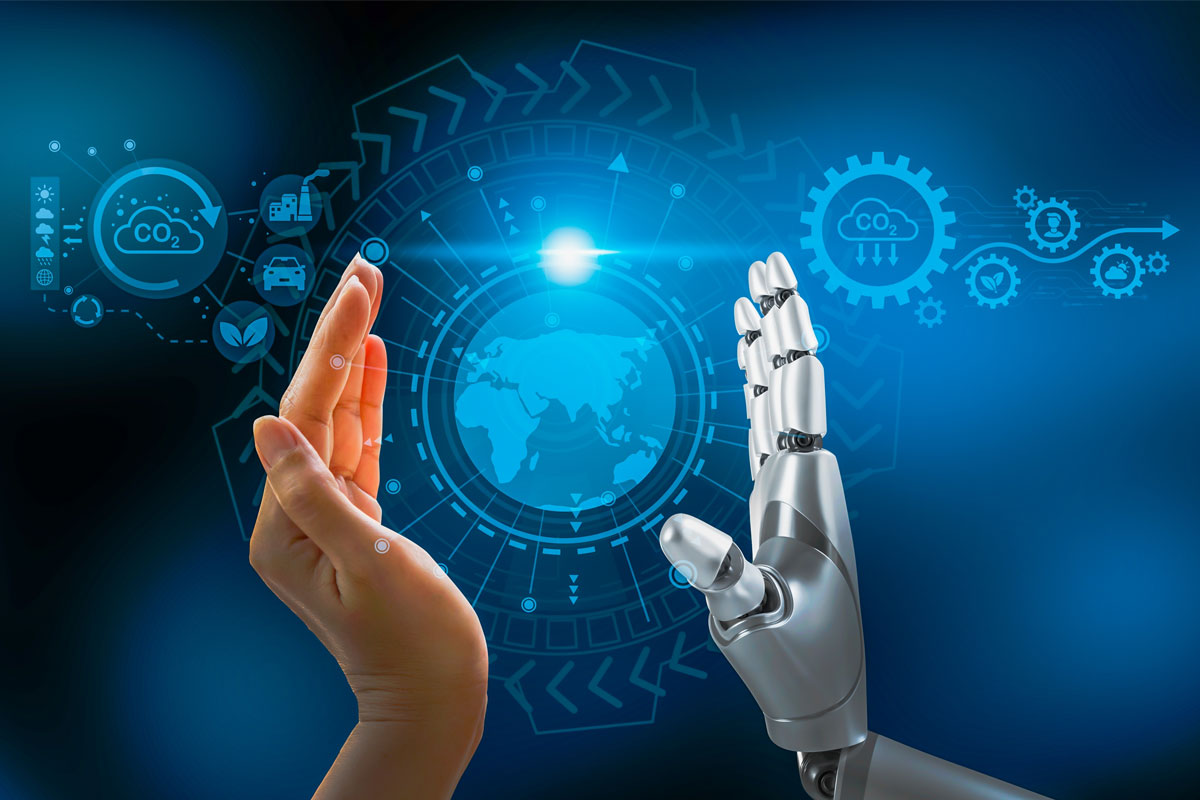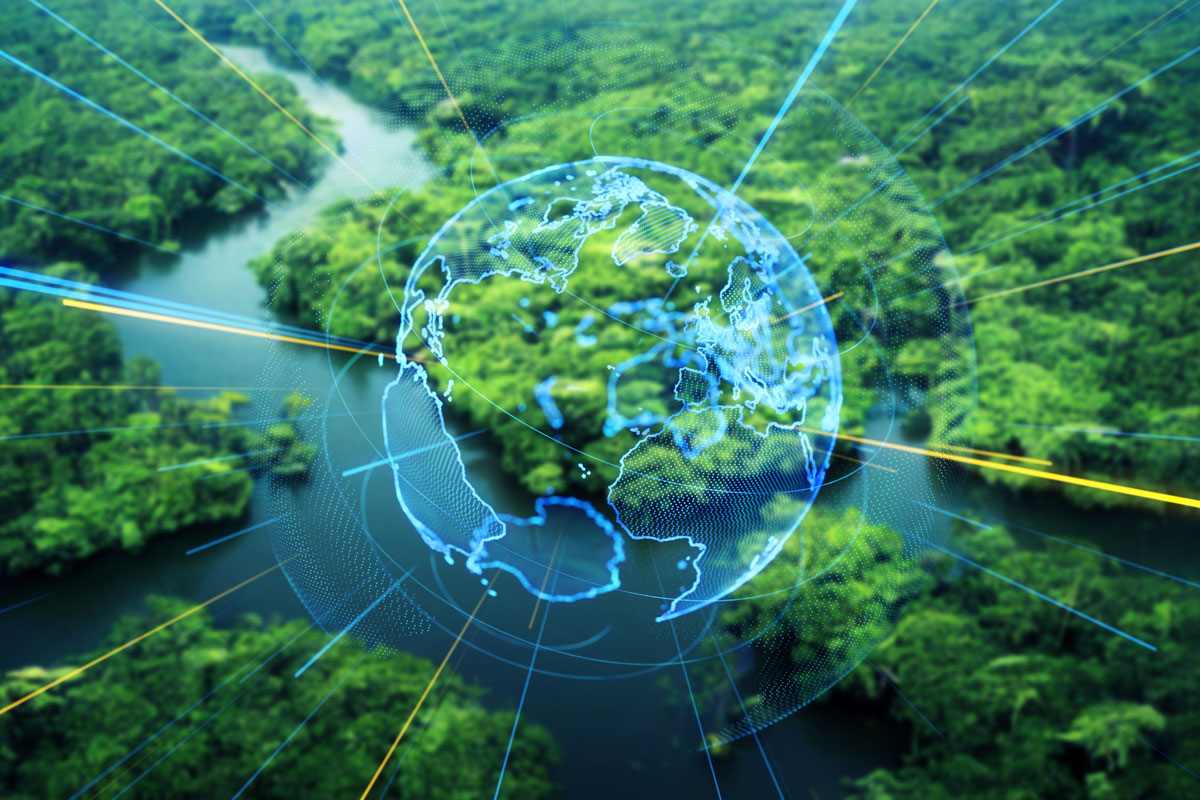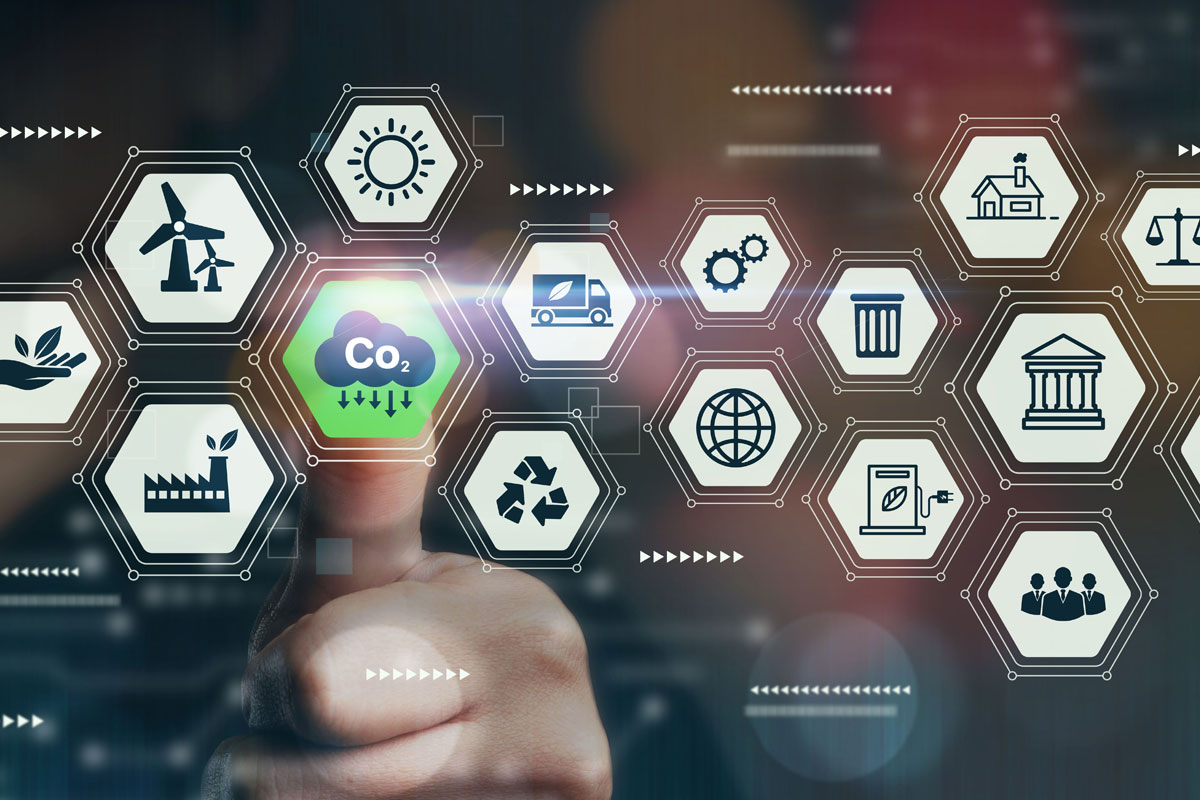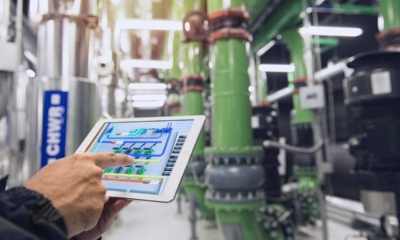
Climate change is a global issue impacting all aspects of our lives, forcing us to confront challenges that change how we work and live. It’s a challenge that is being addressed, in one way or another, by politicians, engineers, economists, biologists, geologists, manufacturers, and more.
AI experts are doing their part as well. AI is being applied in many ways to combat the impact of climate change, and it’s being used in countless applications to help us mitigate and adapt to this global problem.
AI to Combat Climate Change: The Three Main Themes
One of the most respected organizations addressing AI to combat climate change is the Boston Consulting Group (BCG), which leads AI for the Planet, an alliance created by Startup Inside. This group of experts has identified three fundamental areas of application that provide a useful framework when approaching AI and climate change.1
Mitigation
Using AI to measure emissions at both large-scale and small-scale levels can mitigate the impact of climate change. Essentially, groups can measure emissions with extreme accuracy and make appropriate adjustments. The BCG found that using AI can reduce an organization’s carbon footprint by as much as 10%. Scaled globally, this could mean reducing as much as 5.3 gigatons of carbon dioxide. 1

Adaptability and Resilience
It’s believed that AI can be used to increase adaptation and resilience to climate change, helping us safely deal with the ongoing problem. Predicting hazards and long-term effects can help make better decisions, and AI can also be used for management plans and the development of strategic infrastructure, which can all be enhanced by AI.
Fundamentals
Finally, AI can be used to enhance climate research and modeling. It can increase the accuracy of climate models and help with climate-related finance and education. For example, it might increase the chances of environmentally friendly purchases.
Through mitigation, adaptability, resilience, and fundamentals, AI is making our fight against climate change more effective and efficient. But how is it used? What are some specific rubber-to-the-road ways AI can affect this struggle?
Ways AI Can Combat Climate Change
There are countless ways that AI can help in the fight against climate change. The only limits are our willpower and imagination. That said, here are a few ways AI is used to reduce the harm created by climate change:
Weather Forecasting
Traditional methods of weather forecasting are limited in both detail and size. With AI, certain climate patterns can be more accurate and made further out, allowing people to make mitigation efforts earlier. With AI, scientists can better predict events like massive rainfalls, tropical cyclones, high winds, heavy snow, and even wildfires. It can also predict significant heat and dry spells to forecast wildfires better.
Smart Agriculture
Farming uses a massive amount of water. According to World101, agriculture consumes 70% of the world’s freshwater. Unfortunately, about 40% of the water used in farming is lost because of poor use. For example, many sprinkler heads are inefficient and waste approximately half the water they expel. Farmers can irrigate crops more efficiently using AI technology, easing the global water shortage. AI can also be used for better fertilization practices and scheduling. These practices can also increase output; World101 says that Indian peanut farmers using AI have increased production by 30%2.

Transportation
Transportation is perhaps the most prominent and visible gas source contributing to climate change, but AI technology can make it far more efficient. Vehicles equipped with AI can identify the most efficient routes and speeds, and this technology can even help reduce accidents by communicating hazards or accidents between cars.
Urban Planning
When cities and regions are equipped with AI, disaster response and the allocation of resources become more efficient and effective. Resources can be directed where they are needed most, creating the most beneficial response. In addition, “smart cities” can reduce waste by making water and energy use more efficient.
Proudly Contributing to the Fight Against Climate Change
At Ambiq®, we are doing our part in the fight against climate change. By developing ultra-low power SoCs for IoT endpoint devices, we help create a more efficient, environmentally friendly world.
Contact our company to learn more about the benefits of AI in your daily processes!
Resources
1 How AI Can Be a Powerful Tool in the Fight Against Climate Change | July 2022
2 How Can Artificial Intelligence Combat Climate Change?


